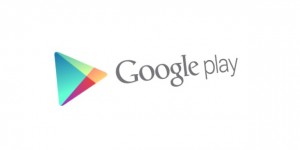How The Consumer OS Has Come To Dominate Our Digital Lives And Why Universal Addressability For Marketers Is The Ultimate Goal
by Ciaran O'Kane on 27th Mar 2012 in News


It is quite astonishing how much of our daily lives is now facilitated by Google. I don’t mean that in a bad way, but the reality is my (and millions of others’) digital life assets are tied in to Google. The daily lives of consumers are now being stored, saved, searched and distributed by the new COS (consumer operating system).
The likes of Google and Apple have amassed a consumer product stack that makes it very hard for anyone to not go ‘all in’ with them. The worlds of hardware and software have collided and are now competing head on with each other.
Google started on this path a long time ago, executing a strategy that was very calculated. They gave us our search, our gmail, our messenger, our blogging platform - as well as alerts, images, news, finance, maps and docs. And of course let’s not forget its latest release, Play, which today popped up on the Google toolbar.
Google has done an excellent job in plugging the gaps in our digital lives with smart consumer-focused products. But this hasn’t been a space solely monopolised by Google
The Big Players In The COS Game
Microsoft, Yahoo and AOL had this relationship with us, but they lost their way (although some are making a comeback). They’ve since been replaced by other more vibrant consumer internet players who in one way or another are now a significant part of our day-to-day lives.
The COS is grounded in user products that shape and design the way they execute our digital experiences. They are ‘always connected’. Regardless of device, they power a consistent user experience.
Google and Apple are clearly winning this race. On the face of it, Apple’s strategy appears to be a complete walled garden - whilst Google’s claim is to be open and friendly. Despite the fact Google products can be accessed in an Apple environment, there is clear feature disparity between the two worlds - with Google are clearly favouring their own stack and why wouldn’t they?
There is now the big race to ‘own the living room’ - another validation that Apple and Google are trying to create the ultimate COS. Apple TV and Google Home Entertainment System prove that the game is still focused on digitising consumer’s lives.
But what of Facebook and Amazon? These two have emerged as absolute media solutions. Amazon is no longer a retailer - and Facebook is no longer a social network. Whether both can present a sustained challenge to both Google and Apple in creating their own version of the COS remains to be seen.
A name that rightly should be in the mix as a significant player in COS space is Microsoft. There have been issues of late, but it can be argued that Microsoft is making somewhat of a comeback. From a user product perspective it has failed miserably in recent years. But they have Xbox live, which has been a huge success over the last few years. Hotmail and Windows Messenger still has a user base of between 300-350 million people, Microsoft office is installed on nearly 750 million machines (depending on which quotes you believe) and of course they now have the Nokia partnership, pumping out up to 100 million smartphones per year. They certainly have the foundations to make a play here.
The End Game Is Always To Sell More Ads
It may seem obvious to some but tying users into one operating system is an incredibly astute commercial move. Google (already finalising its ad tech stack) only has a few more components to add to have ultimate consumer buy-in for everything they need, want and desire. The always connected play is paramount to commercial success.
This will ultimately enable advertisers access to the coveted ad land holy grail: namely, addressability across every device. Google will look to enable advertisers to deliver true story telling to consumers, throughout the entire day across different touchpoints, deliver marketing with precision, efficiency and above all else integrated data sets regardless of which medium delivered the end user the message.
Apple is also gearing up for this. Its sales strategy is somewhat lagging behind Google, and it could also be argued that the company still has a massive blind spot in social (maybe Apple should buy Twitter), but the company is certainly doing something right, commercially and otherwise - especially when you look at its current market cap versus Google.
If universal addressability for marketers is the ultimate goal of the COS, can peripheral players like Facebook, Amazon and Microsoft really afford not to compete? Can Microsoft really challenge Apple, and Google and get itself firmly back in the game? The COS is now a firm strategy for most of these companies as they look to tap more marketing budgets. Expect the space to get even more competitive, as these companies try to map - and dominate - our digital lives.








Follow ExchangeWire